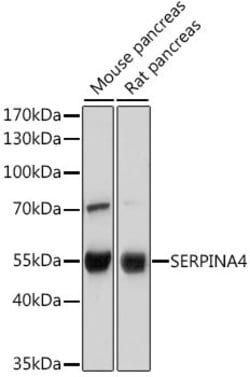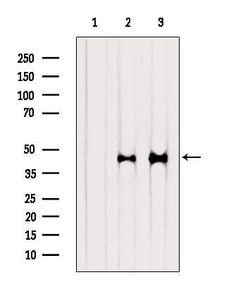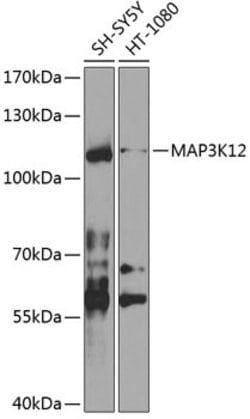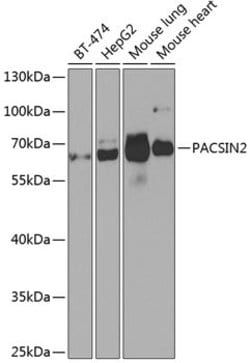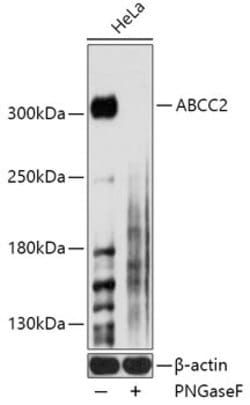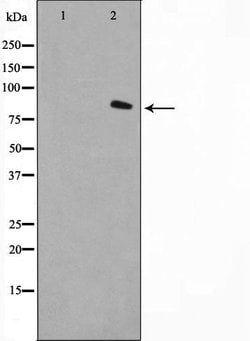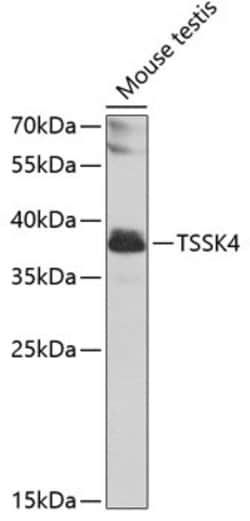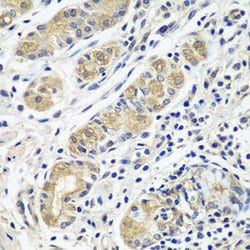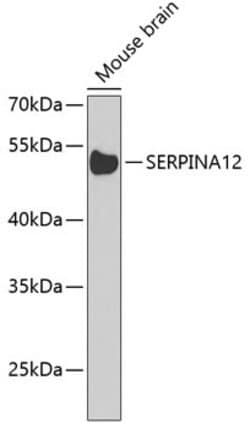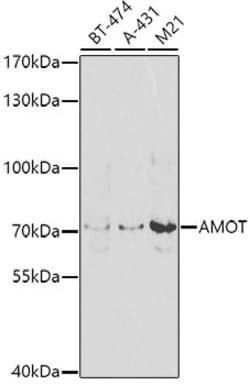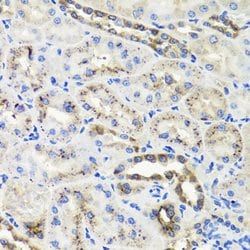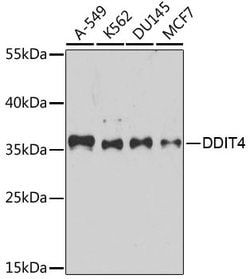SERPINA12 Polyclonal Antibody, Invitrogen™
Manufacturer: Thermo Scientific
Select a Size
| Pack Size | SKU | Availability | Price |
|---|---|---|---|
| Each of 1 | PIPA596921-Each-of-1 | In Stock | ₹ 46,502.50 |
PIPA596921 - Each of 1
In Stock
Quantity
1
Base Price: ₹ 46,502.50
GST (18%): ₹ 8,370.45
Total Price: ₹ 54,872.95
Antigen
SERPINA12
Classification
Polyclonal
Conjugate
Unconjugated
Gene
SERPINA12
Gene Alias
4632419J12Rik, a12, Ol64, Ol-64, serine (or cysteine) peptidase inhibitor, clade A (alpha-1 antiproteinase, antitrypsin), member 12, serine (or cysteine) peptidase inhibitor, clade A, member 12, serine (or cysteine) proteinase inhibitor, clade A (alpha-1 antiproteinase, antitrypsin), member 12, serpin A12, serpin family A member 12, serpin peptidase inhibitor, clade A (alpha-1 antiproteinase, antitrypsin), member 12, serpin peptidase inhibitor, clade A, member 12, Serpina12, Vaspin, visceral adipose tissue-derived serine protease inhibitor, visceral adipose tissue-derived serpin, visceral adipose-specific serpin
Host Species
Rabbit
Purification Method
Affinity Chromatography
Regulatory Status
RUO
Gene ID (Entrez)
145264, 68054
Content And Storage
-20° C, Avoid Freeze/Thaw Cycles
Form
Liquid
Applications
Western Blot
Concentration
1.78 mg/mL
Formulation
PBS with 50% glycerol and 0.02% sodium azide, pH 7.3
Gene Accession No.
Q7TMF5, Q8IW75
Gene Symbols
SERPINA12
Immunogen
Recombinant fusion protein containing a sequence corresponding to amino acids 20-320 of human SERPINA12 (NP_7762491)
Quantity
100 μL
Primary or Secondary
Primary
Target Species
Human, Mouse
Product Type
Antibody
Isotype
IgG
Description
- Immunogen sequence: LLKPSFSPRN YKALSEVQGW KQRMAAKELA RQNMDLGFKL LKKLAFYNPG RNIFLSPLSI STAFSMLCLG AQDSTLDEIK QGFNFRKMPE KDLHEGFHYI IHELTQKTQD LKLSIGNTLF IDQRLQPQRK FLEDAKNFYS AETILTNFQN LEMAQKQIND FISQKTHGKI NNLIENIDPG TVMLLANYIF FRARWKHEFD PNVTKEEDFF LEKNSSVKVP MMFRSGIYQV GYDDKLSCTI LEIPYQKNIT AIFILPDEGK LKHLEKGLQV DTFSRWKTLL SRRVVDVSVP RLHMTGTFDL K; Positive Samples: Mouse brain Vaspin is a newly described adipocytokine expressed predominantly in visceral white adipose tissues
- Structure analysis of vaspin predicts the presence of three beta-sheets, nine alpha-helices, and one central loop, which are distinctive structural features of Serpin family members
- The serpins are irreversible ("esuicidal"e) serine-protease inhibitors, characterized by having more than 30% sequence homology with alpha1-antitrypsin and a conserved tertiary structure, which contains an exposed reactive center loop that acts as a pseudo-substrate for the target proteinase
- Members of this family play an important role in a number of fundamental biological processes, including blood coagulation, fibrinolysis, complement activation, angiogenesis, inflammation, and tumor suppression
- In humans, the serpins represent approximately 2% of total serum proteins, of which 70% is alpha1-antitrypsin
- Vaspin exhibits 40.2% sequence identity with alpha1-antitrypsin
- Yet, its protease inhibitory activity is still unknown
- Vaspin mRNA expression in visceral fat is positively correlated with BMI and percent of body fat
- Administration of vaspin to obese mice improved glucose tolerance and insulin sensitivity, reflected by normalized blood glucose levels
- It also led to the reversal of altered expression of diabetes-relevant adipocytokines, including leptin, adiponectin, resistin, and TNF-alpha
- These findings suggest a potential clinical use for Vaspin in ameliorating certain aberrations seen in the diabetic/obesity metabolic syndrome.
